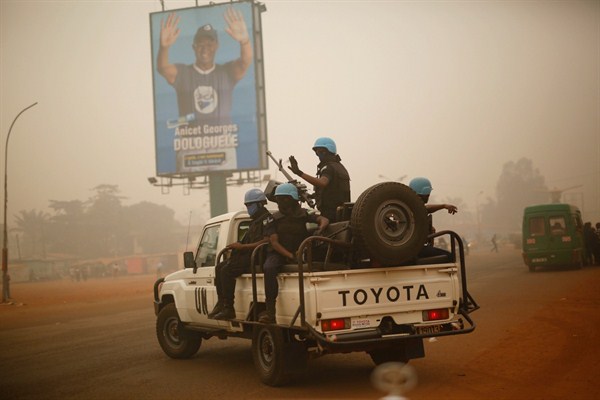On Nov. 15, the United Nations Security Council will meet to decide on the fate of the U.N. mission in Central African Republic, known by its acronym MINUSCA. In stark contrast to the debate over the U.N. mission in the neighboring Democratic Republic of Congo, which the U.S. pushed to reduce last April after citing its ineffectiveness and cost, few in New York expect cuts to the Central African Republic (CAR) mission.
To the contrary, U.N. Secretary-General Antonio Guterres visited CAR at the end of October and called for increasing the mission’s authorized troop ceiling, currently just over 12,000, by an additional 900 troops. Adama Dieng, his adviser on genocide prevention, and Stephen O’Brien, the undersecretary for humanitarian affairs, both also visited the country in recent months and warned of the escalating violence and a distressing humanitarian catastrophe there. The troubling situation and the pockets of success the U.N. force has achieved so far have left the U.S. relatively favorably disposed to increasing troop numbers, despite serious concerns over allegations of sexual abuse by some contingents.
The U.N. mission is in an increasingly complicated position on the ground. Having made some gains in late 2016 and early 2017 by pushing armed groups out of some towns and deterring some attacks, the U.N. force has since appeared overwhelmed by the scale of the crisis as well as by its own rigidity. Poor mobility—the mission has two operational helicopters in a country larger than France—a lack of intelligence, and an unwillingness to react quickly when such intelligence is available have rendered it ineffective in the face of rising violence among competing militias.

